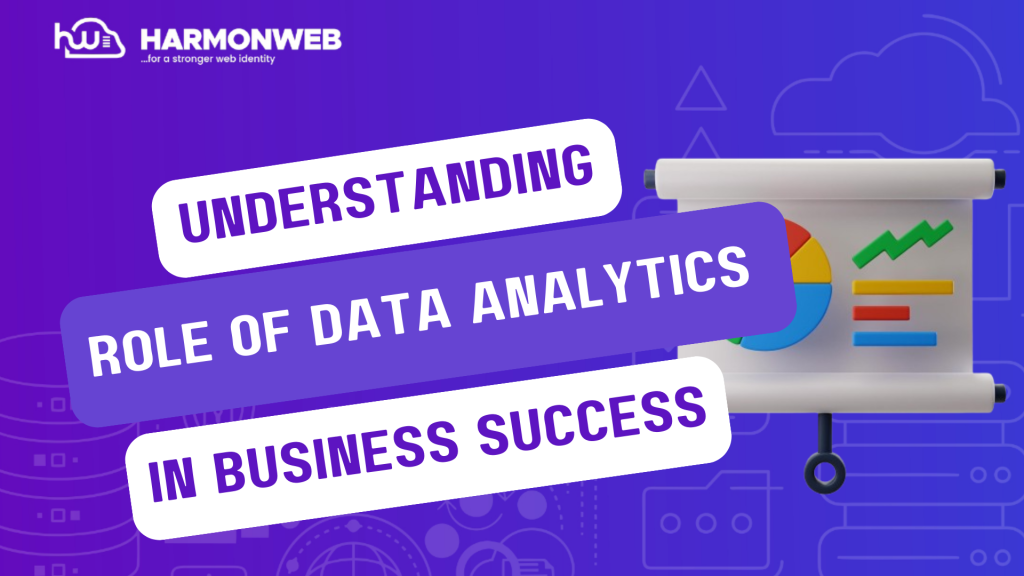Table of Contents
Understanding the Role of Data Analytics in Business Success
In today’s data-driven world, information has become one of the most valuable assets for businesses. Companies are moving away from intuition-based decision-making and are now relying on real-time insights to shape their strategies. This shift leads us to an important question: What is data analytics, and how can it drive business success?
What is Data Analytics?
Data analytics is the process of examining, cleaning, transforming, and interpreting data to discover patterns, trends, and valuable insights. By using various statistical methods, algorithms, and tools, organizations can analyze large volumes of data and make informed, data-driven decisions. The ultimate goal of data analytics is to turn raw information into meaningful insights that drive better decision-making, enhance operational efficiency, and foster innovation.
How Can Data Analytics Help Your Business Thrive
1. Informed Decision-Making
One of the most significant benefits of data analytics is its ability to empower businesses to make informed, evidence-based decisions. Rather than relying on gut feelings or guesswork, companies can analyze data to guide their strategies, optimize processes, and meet customer demands. This leads to more accurate and reliable outcomes.
2. Operational Efficiency
Data analytics helps businesses identify inefficiencies in their operations and streamline workflows. For example, analyzing supply chain data can highlight bottlenecks, allowing companies to optimize inventory management and reduce delays. Additionally, predictive analytics can forecast future demand, helping businesses allocate resources more effectively and avoid costly inefficiencies.
3. Understanding Customers
Data analytics enables businesses to gain deep insights into customer behavior, preferences, and pain points. By understanding their audience, companies can create personalized experiences and develop targeted marketing campaigns that resonate with their customers. This leads to higher satisfaction, increased loyalty, and improved long-term profitability.
4. Risk Management
Risk is inevitable in any business, but with data analytics, companies can moderate risks by analyzing historical data and identifying potential threats. Trends and patterns in the data can predict challenges such as market changes, fraud risks, or operational failures. By anticipating these risks, businesses can develop proactive strategies to mitigate losses and avoid disruptions.
5. Driving Innovation
Data analytics is a powerful tool for driving innovation. By studying market trends and customer feedback, companies can discover new opportunities, develop products or services that meet unmet needs, and stay ahead of competitors. In today’s fast-evolving market, the ability to innovate quickly is a critical advantage.
Types of Data Analytics
There are four key types of data analytics, each serving a unique purpose:
- Descriptive Analytics: Focuses on answering the question, “What happened?” It summarizes historical data to provide insights into past performance and trends.
- Diagnostic Analytics: Explores the question, “Why did it happen?” It digs deeper into the data to identify the root causes of problems or successes.
- Predictive Analytics: Looks forward to answer, “What is likely to happen?” By analyzing historical data, predictive analytics can forecast future trends, customer behaviors, or potential risks.
- Prescriptive Analytics: The most advanced type, prescriptive analytics, suggests actionable steps to take by analyzing data to recommend the best course of action for achieving desired outcomes.
Challenges in Implementing Data Analytics
Despite the clear benefits, implementing data analytics effectively comes with its challenges:
1. Data Quality Issues
Poor-quality data, such as incomplete or inaccurate information, can lead to flawed insights. Ensuring data quality through cleaning and organization is a time-consuming but necessary process to avoid making misguided decisions.
2. Data Privacy and Security
With the increasing amount of sensitive data being collected, ensuring data privacy and security is crucial. Businesses must comply with data protection regulations like GDPR and CCPA and protect their data from cyberattacks, which presents ongoing challenges.
3. Lack of Skilled Personnel
The demand for skilled data professionals, such as data scientists and analysts, has surged. Many businesses face a shortage of qualified talent who can handle complex data sets and turn them into actionable insights, which can slow down or limit the effectiveness of data analytics initiatives.
4. Complexity of Data Analysis
Some advanced forms of data analytics, such as predictive and prescriptive analytics, are highly complex. Interpreting the data and translating it into practical strategies requires a clear understanding of the business goals and the right expertise to apply the insights effectively.
5. Lack of Clear Strategy
Many businesses jump into data analytics without a well-defined strategy. Without clear objectives, data analytics efforts can become scattered and unfocused. A strong strategy aligned with business goals is essential to ensure that analytics delivers meaningful outcomes.
6. High Implementation Costs
Setting up the necessary infrastructure for data analytics can be expensive. This includes purchasing software, hardware, cloud solutions, and hiring skilled professionals. For small and medium-sized businesses, budget constraints can make it difficult to fully leverage the benefits of data analytics.
Conclusion
In an increasingly competitive market, leveraging data analytics is no longer a luxury—it’s a necessity. Businesses that effectively harness the power of data are better equipped to make informed decisions, optimize operations, and drive innovation. Whether it’s enhancing customer experiences, improving efficiency, or managing risks, data analytics plays a critical role in long-term business success.
By overcoming challenges and implementing a clear data analytics strategy, companies can unlock new opportunities, stay ahead of competitors, and ensure sustainable growth in today’s data-driven world.





